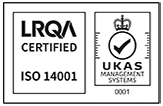Whether you’re tackling a home renovation, garden clean-up or a larger commercial project, choosing the right method for disposing of waste is crucial. Each approach – from ‘man with a van’ services and grab lorries to self-drive tip runs and council waste collections – offers unique benefits and considerations. Understanding these options allows you to make informed decisions based on factors like cost, convenience and environmental impact.
Explore our pros and cons guide to alternatives to skip hire.
What can I use instead of a skip?
There are a number of alternatives to skip hire when it comes to waste removal for both domestic and larger commercial projects, each with their own advantages and disadvantages:
Man with a van service
Pros:
- Convenience – the service includes labour, so you don’t have to load the waste yourself.
- Flexibility – can often be arranged at short notice and for smaller loads.
- Permits – no need for a skip permit, something you would need for an on-road skip if you have limited space on site.
Cons:
- Cost – potentially higher for larger loads due to labour costs.
- Volume limits – less suitable for large-scale projects compared to skips.
- Scheduling – requires coordination for pick-up times, which may not be as flexible as having a skip on-site for an extended period.
- Environmental impact – waste disposal services must adhere to regulations to minimise environmental impact. You’ll need to verify that the man with a van service includes disposal methods that comply with these regulations.
Grab lorry
Pros:
- Efficiency – suitable for large volumes of waste that would require multiple skips.
- Speed – quick loading using the hydraulic device or ‘grab arm’ reduces on-site time compared to manual loading.
- Accessibility – can reach over obstacles like walls or fences to collect waste from challenging locations.
Cons:
- Cost – higher initial cost compared to skip hire, especially for smaller quantities.
- Space requirements – you’ll need sufficient space for the lorry to be able to manoeuvre freely in order to load the waste.
- Access – the waste would have to be moved to an area free of overhanging obstructions, such as phone and electricity lines to allow the ‘arm’ to operate.
- Waste volume – only a large pile of waste suits a grab lorry because it is designed to handle substantial volumes efficiently.
- Traffic – as a grab lorry needs space and ample time to pick up the waste, traffic builds up and causes congestion on the roads, leading to delays and increased emissions.
- Permits – you may require permits depending on the location and duration of the service, adding to overall expense and complexity.
House clearance services – for domestic projects
Pros:
- Comprehensive service – includes clearance of the entire household, including large items.
- Efficiency – fast removal of accumulated waste and unwanted items.
- Space management – optimises space quickly, making it ready for new use.
Cons:
- Cost – can be expensive for large volumes of items.
- Privacy concerns – requires access to personal spaces.
- Environmental impact – waste disposal must follow regulations to minimise environmental impact, and you’ll have to check that the clearance company’s methods of disposal follow these regulations.
Self-drive tip runs
Pros:
- Control – you manage all timings and disposal.
- Flexibility – tips can handle varying amounts and types of waste.
- Cost – usually free-of- charge, although some tips do charge to dispose of specific items and types of materials.
Cons:
- Time and energy – requires loading, transportation and unloading.
- Vehicle requirements – you’ll need a suitable vehicle to transfer the waste and allocate time to clean the interior after use.
- Disposal regulations – you must adhere to local waste disposal rules, for example some tips won’t allow small vans or larger vehicles to dispose of waste more than once a week.
- Hours of operation – some tips are only open at very specific times of day or have limited hours of operation, while others require you to pre-book your visit and are available by appointment only.
Skip bags
Pros:
- Convenience – skip bags are easy to store and use when needed.
- Flexibility – they are available in different sizes to suit varying amounts of waste.
- Cost-effective – generally speaking, skip bags are cheaper than skips, but in terms of value for money for the volume of waste collected, traditional skips are the most cost effective option.
Cons:
- Capacity limitations – skip bags provide smaller capacity compared to skips and they may not suffice for larger projects.
- Loading restrictions – skip bags require flat ground and easy access for filling.
- Collection timing – collection may not always align with your schedule, causing delays.
Different waste types require different removal methods
The type of waste you need to dispose of and, most importantly, whether these materials are recyclable are major factors in selecting the type of waste removal.
For example, wood waste should ideally be placed in appropriate recycling or repurposing streams. Untreated wood can be recycled into mulch, compost or biomass energy. Treated wood, which may contain chemicals, should be taken to facilities that specialise in handling such materials to ensure safe and environmentally-friendly disposal.
Getting the waste wood to the correct recycling or repurposing stream can be simplified by hiring a wood-only skip. Instead of using alternative and more time-consuming waste removal solutions, the skip hire company can ensure the wood is disposed of or repurposed appropriately on your behalf.
When it’s better to hire a skip
Hiring a skip proves more beneficial when you have a large volume of waste or bulky items that require disposal. Skips come in various sizes, accommodating substantial amounts of waste from renovation projects, garden overhauls or significant clear-outs. They are ideal for heavy materials like bricks, concrete and soil, which are impractical for skip bags. If you need to dispose of waste quickly and efficiently, skips provide a convenient solution as they can be placed on-site, allowing for continuous loading during your project.
Additionally, hiring a skip simplifies waste management, as the skip company handles the permits, delivery and collection, ensuring proper disposal in accordance with local regulations. This makes skips a practical and time-saving option for larger-scale or longer-term projects where frequent trips to a dump site or using multiple skip bags would become impractical and result in more cost.
Skip hire FAQs
Is using someone else’s skip illegal?
Yes, it is illegal. The skip hire agreement is between the skip provider and their customer. It can be considered theft, trespassing or even fly-tipping (the illegal dumping of waste), depending on local laws and regulations. You are likely to be issued with a fine or legal action if you use someone else’s skip.
Why is skip hire so expensive?
Skip hire is good value for money when you consider all the additional services that are included with the actual container: permits, transportation, waste disposal fees, labour and environmental compliance. Alternatives to skip hire don’t always include these additional, time and energy saving services.
What do I need to know and/or do to hire a skip?
To hire a skip, you need to determine the appropriate size, check local regulations for permits, compare prices from reputable companies, schedule delivery and collection, ensure safe placement and follow guidelines for acceptable waste types. Find out more here.
Rabbit & Dowling Plant Hire is an established and expert supplier of plant hire for commercial and domestic building projects throughout Sussex, Surrey and Hampshire.
To find out more about Rabbit & Dowling Plant Hire’s plant hire services contact our expert and friendly team on 01903 851957 or info@rabbitanddowling.co.uk.
Rabbit Skip Hire is part of Rabbit Waste Management, which includes Rabbit Demolition.





